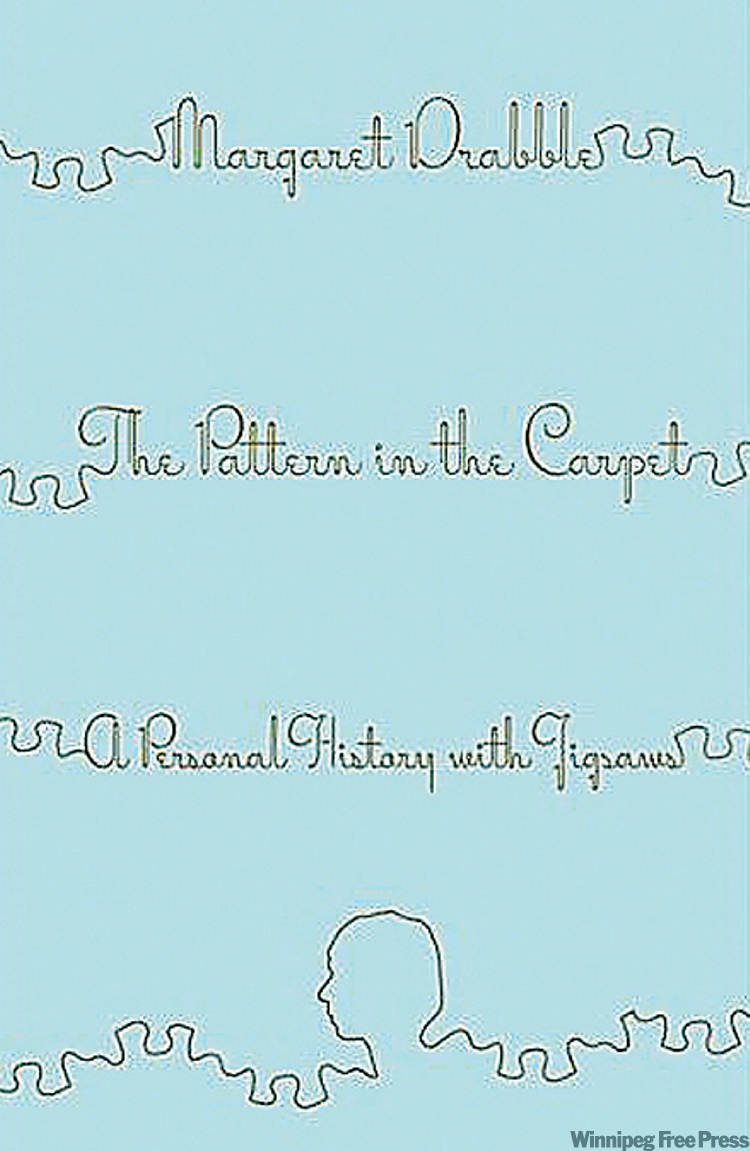Reading Drabble like doing jigsaw without a picture
Advertisement
Read this article for free:
or
Already have an account? Log in here »
To continue reading, please subscribe:
Monthly Digital Subscription
$1 per week for 24 weeks*
- Enjoy unlimited reading on winnipegfreepress.com
- Read the E-Edition, our digital replica newspaper
- Access News Break, our award-winning app
- Play interactive puzzles
*Billed as $4.00 plus GST every four weeks. After 24 weeks, price increases to the regular rate of $19.00 plus GST every four weeks. Offer available to new and qualified returning subscribers only. Cancel any time.
Monthly Digital Subscription
$4.75/week*
- Enjoy unlimited reading on winnipegfreepress.com
- Read the E-Edition, our digital replica newspaper
- Access News Break, our award-winning app
- Play interactive puzzles
*Billed as $19 plus GST every four weeks. Cancel any time.
To continue reading, please subscribe:
Add Winnipeg Free Press access to your Brandon Sun subscription for only
$1 for the first 4 weeks*
*$1 will be added to your next bill. After your 4 weeks access is complete your rate will increase by $0.00 a X percent off the regular rate.
Read unlimited articles for free today:
or
Already have an account? Log in here »
Hey there, time traveller!
This article was published 23/01/2010 (5723 days ago), so information in it may no longer be current.
The Pattern in the Carpet
A Personal History with Jigsaws
By Margaret Drabble

Houghton Mifflin Harcourt, 353 pages, $25
EVEN with two dozen works to her credit, acclaimed British novelist Margaret Drabble claims that writing fiction is a frightening, formless experience that can be ruined when a day’s work goes poorly.
In contrast, she finds putting together the hundreds, perhaps thousands of pieces of a jigsaw puzzle a soothing, satisfying and safe past time.
After all, a jigsaw usually has a symmetrical frame in which to interlock the tiny pieces, something entirely lacking in her recent memoir on puzzling, The Pattern in the Carpet.
Drabble admits that she began with the intention of writing a short illustrated history of the jigsaw puzzle. But instead she has delivered a baffling, complicated and mainly shapeless account of her writing life, her elderly aunt, and her family history all loosely connected by the theme of jigsaw puzzles.
Sometimes described as the author one should read to understand contemporary life in England, Drabble doesn’t work hard to include her international readers in this rambling revue of puzzles, games, writers and thinkers who have influenced her.
Instead we get far too much about her childhood home named Bryn, the idiosyncracies of her Auntie Phyl, a spinster, nursery school teacher and fellow jigsaw puzzler, and unconnected, at times incoherent, even banal, stream-of-consciousness writing.
For example, in explaining the early board game variously called nine men’s morris or ninepeg morris, she talks about how her grandson attempted to play it, despite an absence of rules.
"Stanley, an enterprising boy, looked it up on the Internet, where he found a better explanation of the rules, and uncle and nephew proceeded to do battle. I don’t know who won. They are both by nature persistent."
Drabble does toss us an occasional bone, giving us facts like the origins of jigsaw puzzles and describing the early card and board games and other amusements of the royal set.
Puzzles, she explains, were initially made when 18th-century cartographer John Spilsbury mounted maps on a thin board and cut them apart along geographical lines.
For most of her 52 chapters (many mercifully short), she jumps from topic to topic, revisiting family themes and giving us little clue on how they might fit into the large puzzle of life.
Sometimes the pieces fall nicely in place, but for the most part, this is a frustrating, frame-less read where the fragments of the story just hint at the large narrative.
Reading this book is like putting together a puzzle without the picture on the cover of the box. It’s possible to create order out of the chaos, but really it is the hard way to complete a jigsaw puzzle.
Winnipeg journalist Brenda Suderman has a frustrated personal history with jigsaws, but she likes dissecting patterns in the carpet.

Brenda Suderman has been a columnist in the Saturday paper since 2000, first writing about family entertainment, and about faith and religion since 2006.
Our newsroom depends on a growing audience of readers to power our journalism. If you are not a paid reader, please consider becoming a subscriber.
Our newsroom depends on its audience of readers to power our journalism. Thank you for your support.

